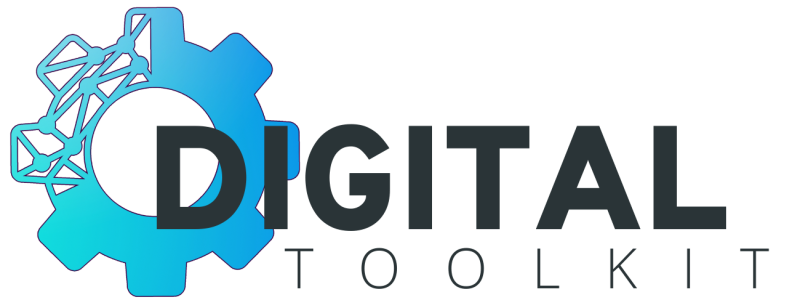Working Effectively
in Teams
By Carly Reading, InkBlotVA

Join us live
Carly Reading from InkBlotVA leads the discussion on How to Work Effectively in Teams. Join us live to find out more! The Digital Toolkit is live every week - register to get the link in your inbox to ensure you get access to real advice for real businesses, online.
Effective teams are more productive, they are more profitable - and they are more fun.
A bold statement? Well, it’s true. And to be effective, there must be a core sense of teamwork that includes GREAT communication.
According to recent research, when people are treated as partners working together with others – even when physically apart – their motivation increases.
At INKBLOTVA, we believe effective teamwork all comes down to communication.
Good communication is the missing link within all the various elements of successful businesses. Essentially, communication is the oil that lubricates all the turning cogs.
And this means we need to look at ways to foster an open-communication culture and ensure this leads to tangible results.
Working effectively in teams
Hands up who wants to lead - or work in a team - that is engaged, alive, collaborative, and turns out winning results?
Well, you’d better get your communication policies sorted first!
Think about all the aspects of effective business and productive teams?
- You need to set out – and manage - deadlines – this needs communication
- You need to manage expectations – this needs communication
- You need to provide task status – this needs communication
- You need to lay out task instruction – this needs communication
The Australian Institute of Business concurs that “encouraging effective teamwork in the workplace will allow your company or department to take on additional work, and in turn, generate extra revenue without having to hire more staff.”
So, let’s look at some practical ways we can improve team communication in order to get the results we want.
Practical Ways to Improve Team Communication
1. Set clear boundaries
If people are willing to put forward an idea without fear it will be shot down, your team will be more engaged, and it will solidify their position within the team environment.


2. Use a task management system
A great way to limit the amount of tedious “where are you at with this” questions, is to have a task management system that everyone can see.
This can also prevent interrupting someone’s workflow which is the annoying consequence of someone having to stop what they’re doing to answer the question.
Examples of platforms:
3. Set up recurring meetings
Setting up recurring meeting times is a clever way to manage expectations of “when will I get some information on this” and “when can we get together”?
If it’s already planned, then team members can decide if the item is urgent and cannot wait and make the call to discuss. Or if it’s not urgent, people know it can wait until you are scheduled to meet
4. Document and link sharing technology
Sending links is a more secure way of knowing you are sending the last version of the document. Embrace software such as Google docs or OneDrive. If you need something more secure for confidential document sharing, then Dignify and Tresorit could be where you’re at.
5. Embrace shared calendars
Shared team calendars work well because providing availability ahead of time will enable the team leader to work out capacities of jobs. Therefore, teams can more accurately be able to communicate this back to the client for delivery estimations.
6. Play to people’s strengths
Understanding team skills will direct the appropriate work to the team member and enable the best working outcomes and deliverables as well as knowing when to upskill as well.
It also makes people feel great when they know their unique skill set is helping achieve the overall team outcomes.


7. Use CRM’s to manage leads or sales
CRMs allow team members to list connections in case one other wants an introduction and the other team member already has a working relationship with them. This fosters as warmer connection.
8. Respect people always and develop mature ways to give feedback
If you need to take something “offline” do so quickly. Don’t let it fester and NEVER do it in front of their colleagues. They are embarrassed and you have lost respect from the team.
9. Encourage ideas and suggestions
If people are willing to put forward an idea without fear it will be shot down, your team will be more engaged, and it will solidify their position within the team environment.
9. Encourage ideas and suggestions
If people are willing to put forward an idea without fear it will be shot down, your team will be more engaged, and it will solidify their position within the team environment.

10. Mentor or foster soft skills to increase collaborations skills
Leaders can mentor others, or team members can find external mentors. The aim of mentoring is to teach and advise, as well as provide support and encouragement to the mentee.
And, as skills can be is a learned through observable behaviour, it pays to constantly embed mentoring into the team.

11. Ensure you have clear systems and processes for common tasks
Processes add clarity, foster team engagement, and improve training & compliance. They are the backbone of any successful business.
Regardless of the size of your business, developing formal processes helps to set out clear expectations and best practices for you and all team members.

12. Embrace team personalities
Some people are naturally more open, talkative, or confident. Others might still be confident in their skills, but they will be quieter in meetings. These people must still get a chance to speak and feel included. If there is a tendency for one or two people to “take over” in meetings, consider setting up a rule where you start by going around the team and asking everyone to speak.

